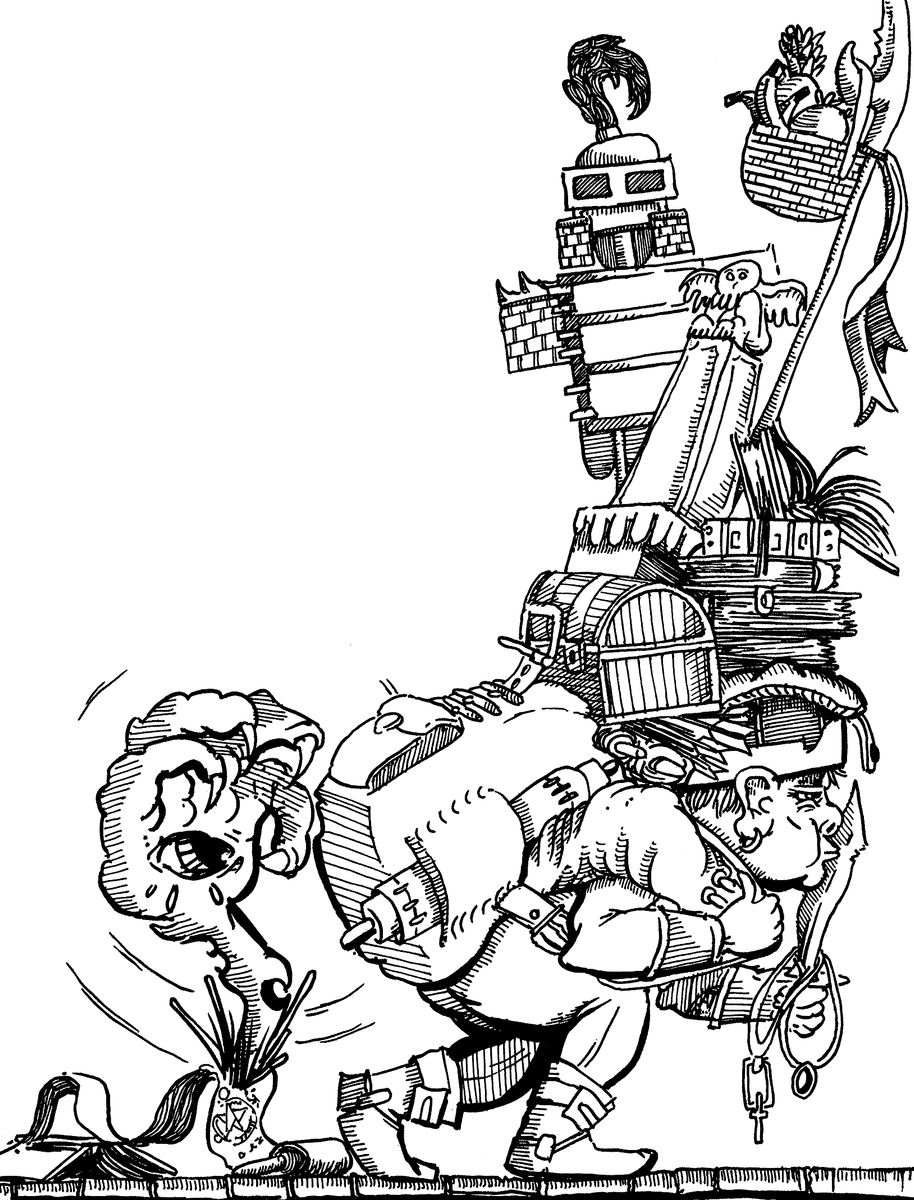Yeah, that’s definitely all stuff I want to incentivize. But, I’d also like some tension between paying for equipment, hirelings, etc. and paying for levels. It’s a dynamic I really like in Soulsborne games and would like to bring into my tabletop RPGs.
I've managed to keep my PCs spending the piles of cash they accumulate by the following:
1. Offering basic Potions of Healing for sale at the abbey in the base town, at 200gp each, with random amounts of them available between adventures. At higher levels/less frequently I also make Neutralize Poison (Mithridate) available at 1000gp a shot.
2. Offering 1st to 3rd level MU scrolls for sale from the local wizard who works for the Baron, and keeps his apprentices steadily scribing. 200gp for a 1st level, 750 for 2nd, 2000 for 3rd, with random spells on offer at any given time (they specifically don't sell Charm Person, though, to forestall problems in town).
3. Later, once they make more connections, other things to spend cash on will also crop up. NPCs who sell poisons, other interesting potions, treasure maps/adventure hooks, etc.
4. Regular living expenses. Every month of game time I have them pay 1% of their xp total in GP, just for cost of living. Training, clothing, equipment upkeep, rent, nostrums, medicines, bribes, etc. This rule is actually taken from OD&D.
5. Hirelings! Extra members of the party are very useful in B/X. I tend to have them work for a third to half share of treasure, and give each NPC retainer who actually goes into the dungeon (as opposed to a flunky who just tends the mules and stays outside) a half share of XP. Note that by the book in B/X / OSE NPC retainers take a FULL share of XP but only actually get half of it for themselves. The other half goes to waste. I think this is an annoying disincentive and prefer to just have them take a half share.
6. Allowing them to gain bonus XP by carousing, Conan/Fafhrd & Grey Mouser style. I think Jeff Rients was the first person in the OSR to popularize this, back in 2008*. Basically, once after each delve, I let the adventurers blow a bunch of cash partying/celebrating, splurging on wine, company, song, fancy foods, etc. Roll a d6, multiply by 100 to see how much gold you spend, but you get that full amount as bonus XP! This is a bit more generous than Jeff's original system, where you have to make a Save vs Poison to actually get the xp, and a fail results in some humorous or interesting complication. I still have them make the save against a complication (because those can be fun to play out), but guarantee them the XP. In Jeff's system you have to move to a bigger town or city to roll a bigger die and spend more; because in my game I've kept them primarily with the same base town, I've let them increase die size as a function of level- reasoning that they make more connections and get access to pricier booze and stuff. At 3rd level I let them choose to use either a d6 or d8, and at 5th they get the option of a d10 instead.
*
Party like it's 999
Reddit expanded carousing table




